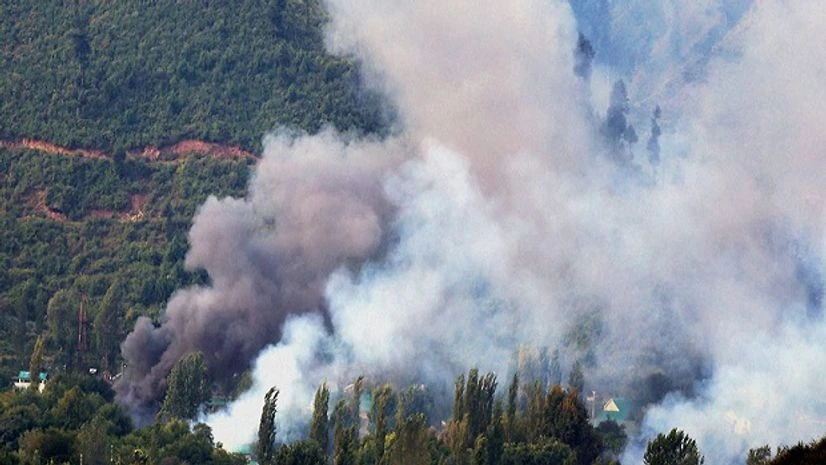A top intelligence officer on Thursday blamed Pakistan for the terror attack in Uri, saying this was just one of the scores of such dastardly acts which originated from across the border in last few decades.
Director of Intelligence Bureau (IB) Dineshwar Sharma said the whole country was highly agitated over the terror strike in Uri in Jammu and Kashmir in which 18 soldiers were killed and an equal number were battling for their lives.
"This incident is only one in a series of such dastardly acts during the last few decades for which planning, financing, training, arming and indoctrination on religious lines owe their origins to sources beyond the borders of India," he said at a conference of top security experts from South Asian countries.
The second Meeting of the high level group of eminent experts to strengthen the SAARC (south Asian Association for Regional Cooperation) Anti-Terrorism Mechanism was attended by intelligence chiefs of Nepal, Bhutan, Bangladesh, Sri Lanka, Afghanistan, the Maldives, besides India.
Director General of IB of Pakistan Aftab Sultan did not attend the meeting amidst the ongoing hostility between India and Pakistan over Uri terror attack.
Sharma asked the SAARC nations to strictly enforce internationally mandated sanctions against terrorist entities and individuals.
More From This Section
The IB Director said the terrorist organisations use easily accessible technology to attack both soft and hard targets.
"Self-radicalisation over internet and social media, and spread of influence of Islamic State all over, including in our country, has added new dimensions to the threat," he said.
He identified countering financing of terrorism as one of the most important tools to fight the terror menace.
Sharma said cyberspace has become an important area for radicalisation and spread of jihadi materials.
The problem of fake currency feeds into supporting terrorism and can create economic destabilisation in South Asia, he said.
Observing that terrorism has emerged as a big challenge for the entire world, Sharma said no country today is in a position to tackle this problem on its own.
"Close cooperation and sharing of real-time intelligence are, therefore, an imperative for all of us to secure all countries and people," he informed.
He called upon the SAARC member states to ratify and enable various conventions enacted by the SAARC grouping, including the Convention on Suppression of Terrorism and Additional Protocols and the Mutual Assistance in Criminal Matters.
Sharma highlighted the first meeting on the SAARC Anti-Terrorism Mechanism in February 2012 which had stressed the need for immediate operationalisation of the newly created SAARC Terrorist Offences Monitoring Desk and SAARC Drug Offences Monitoring Desk in Colombo for creating database which could be used by all members.
He said not much progress seems to have taken place on this initiative. He also called upon the delegates to take up 'Terror Financing and Money Laundering' and 'Cyber Crime' as new agenda items.

)
